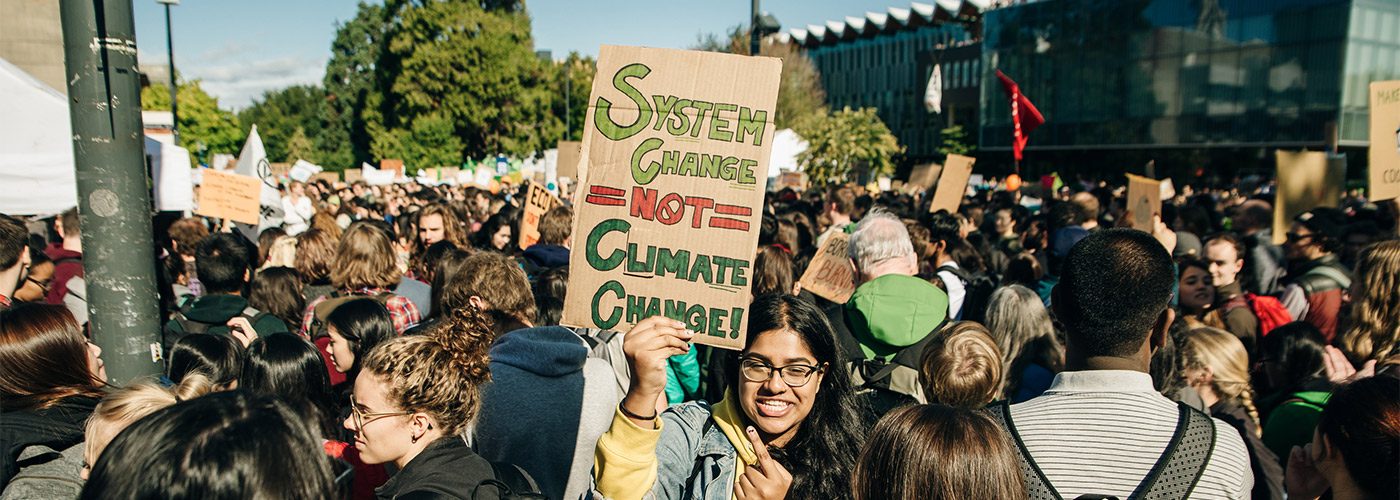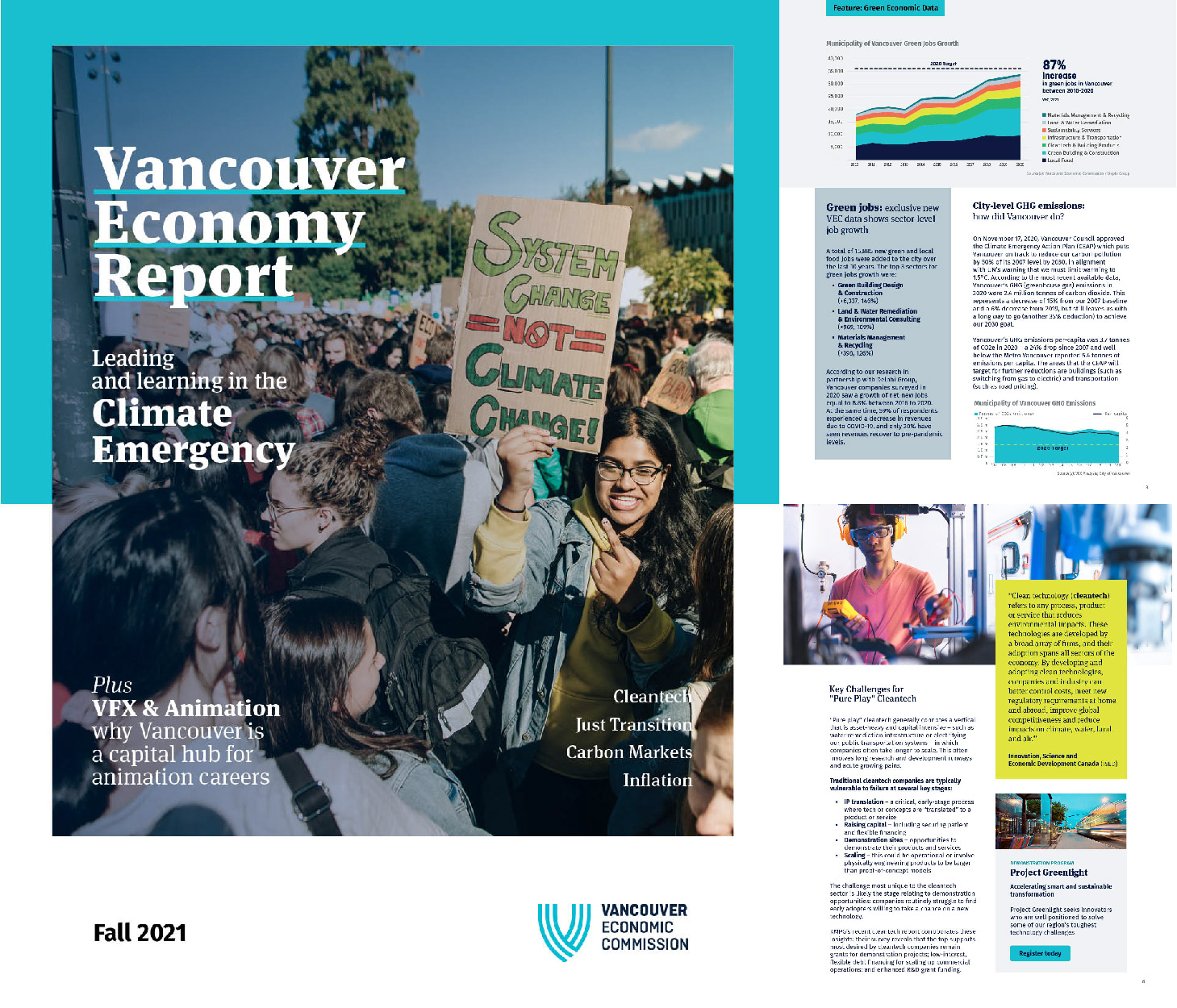Vancouver Economy Report Fall 2021
Leading and learning in the climate emergency


.partners-row {
background-color: #eff3f5;
align-items: center;
justify-content: center;
}
.partners-column1 {
float: left;
width: 45%;
padding: 3em;
padding-bottom: 0px;
}
.partners-column2 {
float: left;
width:55%;
padding: 3em;
padding-bottom: 0px;
}
.partners-row:after {
content: “”;
display: table;
clear: both;
}
@media screen and (max-width: 970px) {
.partners-column1 {width: 100%;}
.partners-column2 {width: 100%; padding-right: 0em; padding-left: 0em;}
.video-description {padding-left: 3em; padding-right: 3em;}
}

Published: October 20, 2021
VEC senior manager of research James Raymond shares exclusive new green jobs data. Watch the video or download the report to see how Vancouver fared in its goal to double the number of green jobs by 2020.
“No matter how well-informed you are, you are surely not alarmed enough,” writes David Wallace-Wells, in his iconic 2017 article “The Uninhabitable Earth.” He was referring to the paralyzing scale, implacability and, in some ways, the abstractness of the climate emergency illustrated through the acronyms and models of Intergovernmental Panel on Climate Change (IPCC) projections.
Nearly five years on from the Paris Agreement, the global community ticks along without the unity or cohesion necessary for impactful climate action. At this stage, there may be no targeted emissions reduction program that would forestall disaster – we are unprepared for the systemic change required to tackle the problem. Furthermore, climate grief and choice paralysis are genuine phenomena that underpin the challenge before us all, and in many cases, hinder our ability to collectively visualize the future we want.
For instance, do we want a future that prioritizes greater social reciprocity, where people willingly gift – rather than transact – items, time, services, and care? Does that future centre Indigenous ways of knowing? Does it run on economic models designed for humanity to thrive – on a just social foundation, and within the boundaries of our planetary systems? Does it move away from a reliance on continual economic growth?
For years, Vancouver has been part of a global cities’ movement for progressive, sustainable economic development, and we have both led and learned from other international leaders. This report contains a few of the many promising concepts being explored for a climate-just future.
The Vancouver Economic Commission respectfully acknowledges that it is located on the unceded territories of the xʷməθkʷəy̓əm (Musqueam), Sḵwx̱wú7mesh (Squamish), and səl̓ilwətaɁɬ (Tsleil-Waututh) Nations.